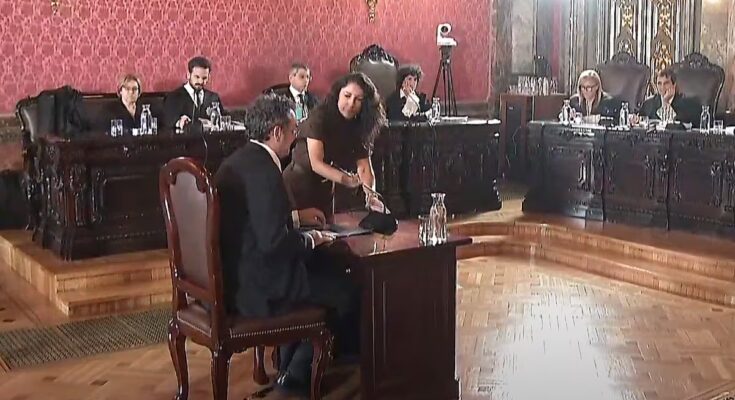The Supreme Court decided by majority to condemn the State Attorney General, Álvaro García Ortiz, for having revealed confidential data to a fine of 7,200 euros and special disqualification from the position of head of the Public Prosecutor’s Office for a period of two years. This disqualification will take effect when the sentence is notified, which, at the moment, is not written. The Criminal Chamber only advanced the sentence signed by five of the seven judges who made up the Court. From that moment on, the Public Prosecutor will be able to present an episode of annulment and then turn to the Constitutional Court.
According to several jurists consulted by EL PAÍS, the sentence – which will be signed by the president of the Court, Andrés Martínez Arrieta and by judges Manuel Marchena, Antonio del Moral and Carmen Lamela – is definitive within the Supreme Court itself. “The sentence, awaiting drafting, will take effect from the moment of its notification in legal form,” describes the sentence issued Thursday. Therefore, the only thing possible is to file an annulment appeal, which is an exceptional procedure for challenging final judicial resolutions, and which is, in reality, a mere procedure that very rarely bears fruit.
For this reason, García Ortiz will have to turn to the Constitutional Court after filing the annulment incident, which could take a few more weeks after the sentencing hearing. The body chaired by Cándido Conde-Pumpido expresses its opinion on the violation of rights contrary to the Constitution itself. The Attorney General can appeal for protection by asserting whatever he believes, based on the arguments presented by the magistrates in the final sentence.
One of the most controversial points that García Ortiz already tried to highlight during the investigation was the disproportionality of having consented to the entry and search of the Attorney General’s office. Furthermore, the Central Operational Unit (UCO) of the Guardia Civil turned over the entire telephone and did not adapt to the times imposed by the investigating judge Ángel Luis Hurtado to find out if the email leak of the boyfriend of the president of the Community of Madrid had left his electronic devices. It will therefore be necessary to see whether the material seized in his search and that of the provincial prosecutor of Madrid, Pilar Rodríguez, (indicted at the beginning of the investigation) was decisive for the conviction and whether the public prosecutor will be able to use this route in the amparo appeal.
Beyond the Constitutional Court, the public prosecutor can continue to advance towards the European Court of Human Rights, based in Strasbourg.



